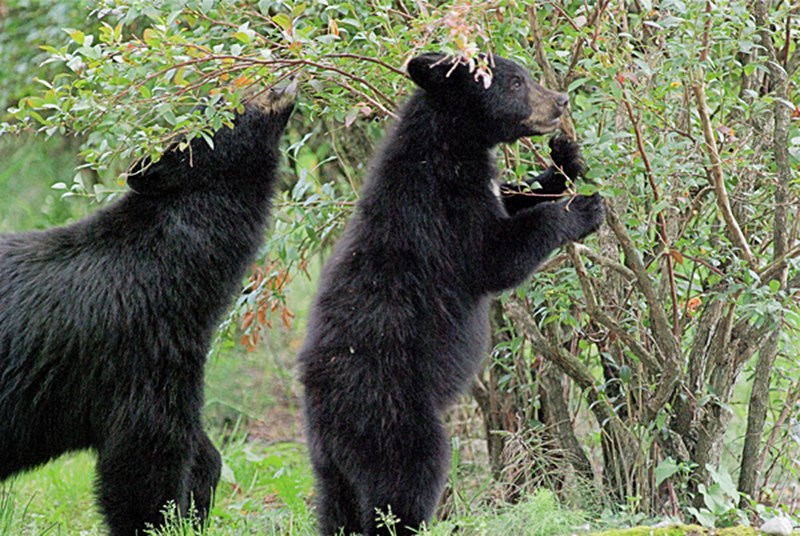The 2017 bear season in the Tri-Cities was one of the busiest yet, reports the BC Conservation Officer Service, with more than 2,000 complaints handled since April.
And while some of those complaints were due to repeat offenders — bruins that couldn’t stay away from people’s homes and garages — the numbers paint a picture of a region that is attractive to bears that come down from the mountains in summer or spend winters in nearby ravines.
“There are probably hundreds of bears in that geographic area of the Tri-Cities,” said Insp. Murray Smith, noting they've been seen on Westwood Plateau, in urban areas of Coquitlam, and on Burke Mountain, through Port Coquitlam, the Coquitlam River watershed, along the Pitt River, all the way to Port Moody, Anmore and Belcarra.
On Tuesday, one frisky bear checked out the West Coast Express platform, forcing TransLink to evacuate it briefly around 8 a.m.
Many of the bears entering local neighbourhoods are attracted by the smell of garbage, prompting the cities to get tougher on people setting their carts out early, leaving green bins unlocked or being careless with other attractants.
In Coquitlam this year, more than 400 fines were handed out, costing residents up to $500 each, while Port Moody issued 630 tickets with penalties ranging from $50 to $150, and Port Coquitlam delivered 48 tickets costing $150 under the solid waste bylaw. Coquitlam also gave out 4,840 warnings this year.
“Thank goodness for the support we get from our municipal partners,” said Smith, who said the CO service relies on the cities to deal with scofflaws because his team is busy dealing with bears as well as poaching, polluting and a number of other files.
Still, despite the fines and improved cooperation among homeowners, some 15 bruins had to be destroyed, on par with 2016; as well, several bears were relocated, including three last week, and two cubs were sent to Critter Care to be looked after until next spring.
Although the deaths are unfortunate, Smith said they represent a small number of the actual complaints and are handled in a way to prevent future conflicts between humans and bears.
Murray cited one example, recently, when a bear was breaking into sheds and causing multiple complaints. A trap was set but he never took the bait.
“It’s really important we deal with the attractant. That’s the long-term solution: changing behaviour and habits. The bears won’t change."



